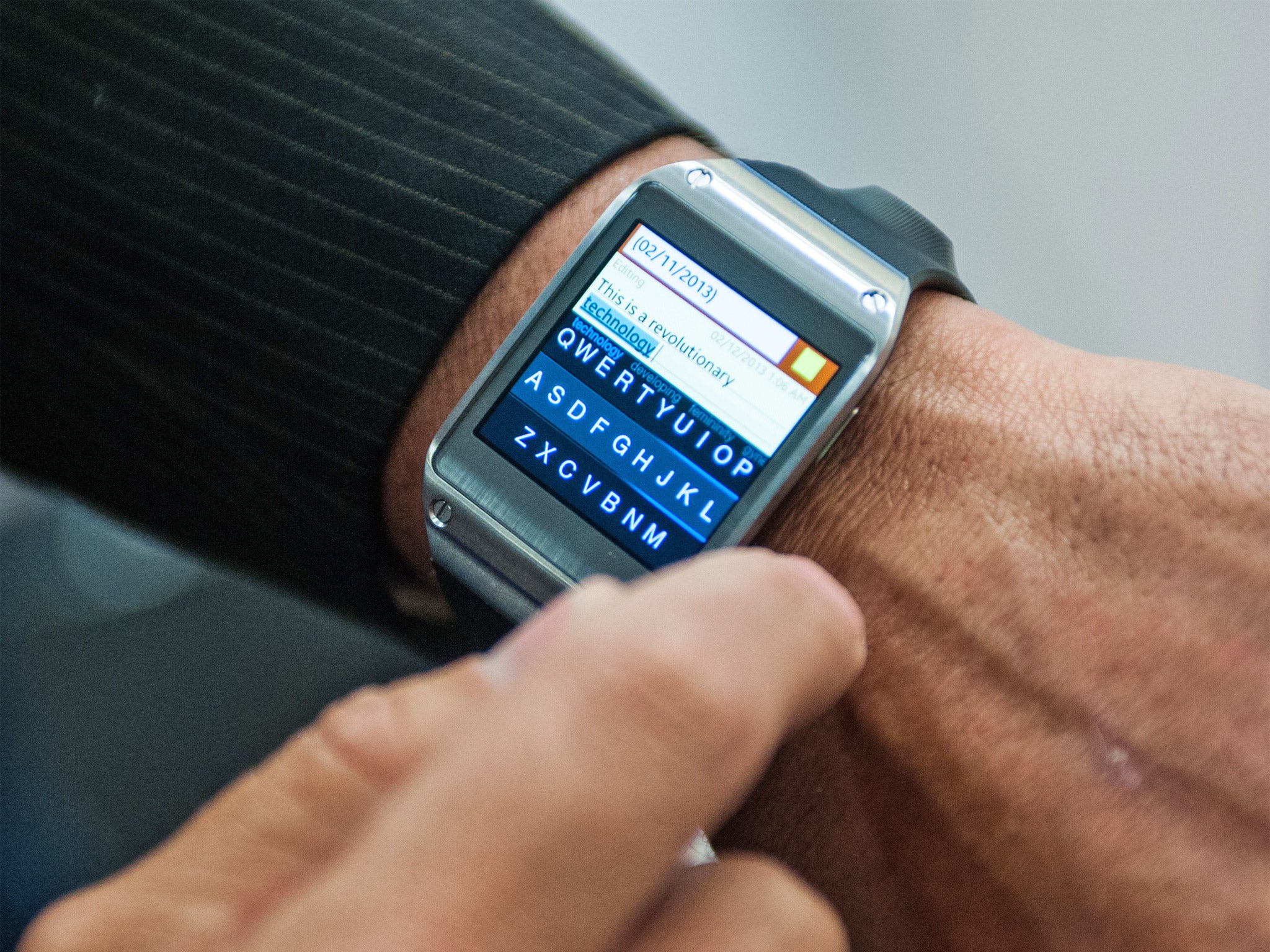Wearable technology: Latest devices allow employers to track behaviour of their workers
Process of monitoring employees' productivity is called 'human optimisation'

Your support helps us to tell the story
From reproductive rights to climate change to Big Tech, The Independent is on the ground when the story is developing. Whether it's investigating the financials of Elon Musk's pro-Trump PAC or producing our latest documentary, 'The A Word', which shines a light on the American women fighting for reproductive rights, we know how important it is to parse out the facts from the messaging.
At such a critical moment in US history, we need reporters on the ground. Your donation allows us to keep sending journalists to speak to both sides of the story.
The Independent is trusted by Americans across the entire political spectrum. And unlike many other quality news outlets, we choose not to lock Americans out of our reporting and analysis with paywalls. We believe quality journalism should be available to everyone, paid for by those who can afford it.
Your support makes all the difference.In the past, companies looking to increase the productivity of their staff may not have stretched much further than a modest increase to the Christmas bonus pot or the installation of a new coffee machine.
But the dawn of wearable technology has led to the creation of devices capable of building up workers’ personalised biological profiles, allowing them to analyse when they are at their peak and when they are having an off-day. It is being called “human optimisation”.
The innovation, which is already used by elite sports teams around the world to ensure that their athletes are in top condition ahead of big matches or races, is attracting the interest of hedge funds, banks, consultancies and call centres across the UK.
Dr John Coates, a fellow in neuroscience and finance at the University of Cambridge who specialises in the biology of risk taking and stress, said he is now getting “about one call a week” from financial institutions, healthcare companies and tech firms interested in applying his research in the workplace.
“Up to now, if you weren’t doing well at your job, most people thought the corrective was more information or better reasoning, some kind of psychological intervention,” he told The Independent. “People are just wrapping their brain around this idea that if your body’s a mess, you’re not going to do very well at anything cognitive.”
Previously, wearable technology has focused on improving basic efficiency or safety in the workplace – but the new gadgets could allow firms to link their staff’s behaviour and physiological data to their business performance for the first time, even alerting them if they are in need of a day off.
Much of the interest has come from high-risk financial businesses, whose staff are placed under enormous pressure. If the technology works, a wearable gadget could potentially warn a stock market trader to slow down if they are not performing at their best – and give them a green light when they are “in the zone”.
As well as analysing the wearer’s current biological signals, the technology could also predict what their physical state might be days ahead of a crucial meeting. Sports teams and athletes already do this, but do not like boasting about their results.
“The public doesn’t really know what’s going on in sports physiology because the really good ones don’t publish – they want gold medals,” Dr Coates said. “I’m working with some really good ones, and what they know right now is extraordinary. They can predict whether an athlete’s going to be in the zone in three days’ time, and if he or she isn’t going to be in the zone they know how to put them there. That’s going to happen in the work world.”
Products offering biological monitoring are already on the market. A firm called Equivital makes a chest-mounted wearable sensor that measures heart rate, stress, breathing, skin temperature and body position. Humanyze, meanwhile, makes “smart work badges” containing microphones so employees’ voices can be analysed.
Chris Brauer, director of innovation at Goldsmiths, University of London, said financial traders may soon produce their own “biometric CVs” to prove to prospective employers that they have what it takes to cope with stress – in much the same way that a sports star’s medical information might be handed over when they sign with a new team.
“It’s not just about other people learning about what makes their employees productive,” he said. “When workers learn about themselves and get intra-personal knowledge about their own habits and what makes them perform to a higher standard, they find that incredibly insightful.”
Join our commenting forum
Join thought-provoking conversations, follow other Independent readers and see their replies
Comments